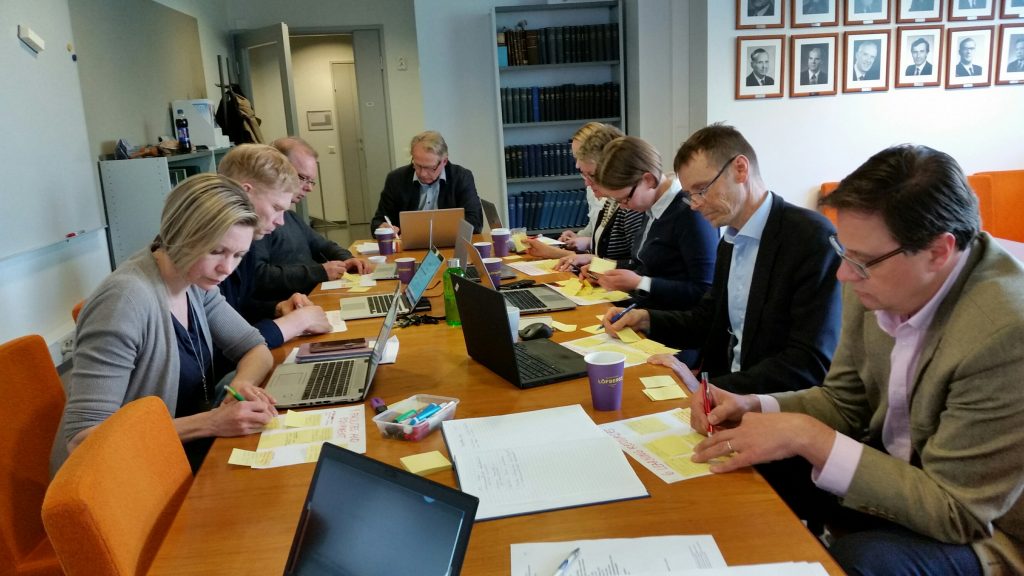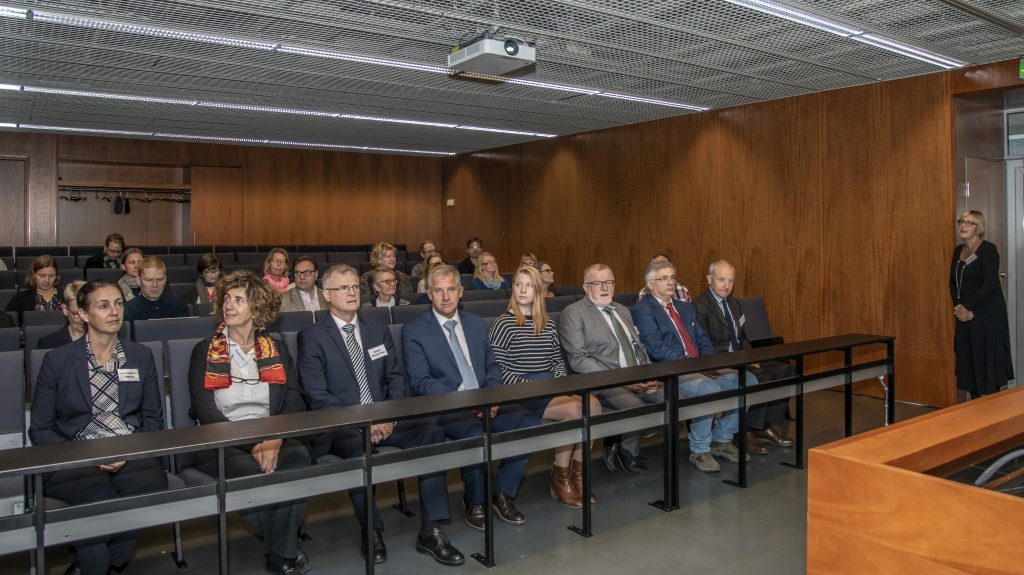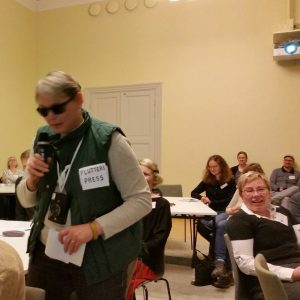HARMONISATION OF EDUCATION AND QUALITY ASSURANCE
Accreditation for education
From the perspective of education, the year 2019 was dominated by a European assessment procedure, or the European System of Evaluation of Veterinary Training (ESEVT). The assessment is aimed at ensuring that the content of education fulfils the requirements of EU directives and European quality standards. The purpose of the system is to harmonise the veterinary education provided in different countries so that external operators are able to trust in the content and quality of that education, as well as to help relevant faculties develop their training offerings.
Early in the year a number of Faculty-level information sessions were held on the progress of preparations related to the assessment and its implementation, while committees discussed the themes in meetings and several workshops on the topic were organised. Thanks to its frequent use, the acronym ESEVT became established as part of the vernacular at the Faculty. The large-scale self-assessment report was completed by late June. Contributions to the preparations and implementation were made by an extremely broad range of operators essential to education, with representatives of stakeholders and University leadership taking part alongside Faculty staff and students.

The extended management group of the Faculty working on the self-assessment.
The actual assessment visit took place between 16 and 20 September 2019. The assessment panel, comprising experts from six European countries, examined 11 areas on the basis of the self-assessment report, additional questions based on the report, site tours conducted during the assessment visit as well as a number of group interviews and discussions. The observations are compared with the standards and numerical indicators set in the assessment guidelines.
At the end of the visit, the group presented its key findings. Among other things, praise was given to the commitment of staff and students, the use of online teaching solutions and the link between research and teaching. On the other hand, further development needs were identified in the utilisation of stakeholders in education, while certain procedures associated with quality assurance should be formalised. Since no serious failings were identified, the group stated it was recommending the granting of accreditation status on the basis of the assessment. This was only a recommendation, as the final decision is made by a different body, the European Committee of Veterinary Education (ECOVE), on the basis of the visit report. An affirmative decision by ECOVE was received before Christmas, a cause of celebration for the Faculty. The final assessment report was submitted to the Faculty only in January 2020, leaving the consideration of required further measures for this year.

The assessment panel in the front row, with the group’s chair on the right (photo: Satu M. Leppänen).
University-level harmonisation
Several reforms are underway at the University of Helsinki, including the development of electronic academic administration systems, further integration of student guidance and supervision into degree programmes, as well as the development of various reporting procedures. In addition, Flamma, the internal communication channel of the University, has been redesigned in both structure and content. A joint teachers’ meeting held by the Faculty on 17 December 2019, at the end of the term, focused on completed and ongoing reforms in a slightly novel manner.
Information retrieval in Flamma was tested with multiple choice questions, for which a team competition was arranged between tables in the meeting. There were no restrictions on aids, and, indeed, the whole room was so actively absorbed in information acquisition that for a long time every head in the room was lowered in concentration. Between more active sessions, a more thought-provoking one was the long introduction to psychological flexibility given by Nina Katajavuori, senior lecturer in university pedagogy. Katajavuori highlighted the fact that things can appear in a drastically different light according to whether we lend an ear to the encouraging or belittling voice in our minds.

Attendees in the teachers’ meeting focusing on the team competition.
To conclude the teachers’ meeting, teachers of the Faculty involved in supervising students had designed a new interview-oriented way of introducing a new supervision model for supporting students, integrated into the next year’s curriculum. The interviews were conducted by a reporter from Plutteri Pressi, a fictional media outlet, whose professional approach and carefully prepared questions to degree programme directors Antti Iivanainen and Riikka Keto-Timonen brought quickly to the fore key aspects in a way that surely captivated all present. Once again, the teachers’ meeting proved to be an excellent means of promoting collegiality.

The Plutteri Pressi reporter interviewing teachers.
Mirja Ruohoniemi
Vice-dean in charge of basic education
Faculty of Veterinary Medicine
University of Helsinki